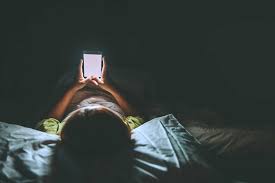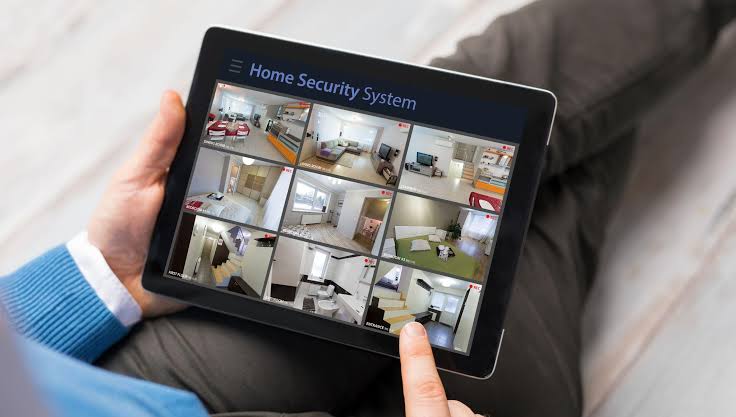Technology has become a central part of modern life, shaping how people work, connect, and relax. While gadgets offer convenience and entertainment, their growing presence has raised concerns about sleep quality. Many individuals now experience sleep disturbances linked to the constant use of smartphones, tablets, laptops, and wearable devices. Sleep is essential for physical and mental health, but the overreliance on gadgets is disrupting natural rest cycles in ways that are becoming more visible today.
Blue Light and Its Effects on Sleep
One of the major ways gadgets affect sleep is through blue light emission. Screens from smartphones, laptops, and TVs release blue light that interferes with the body’s production of melatonin, the hormone responsible for regulating sleep.
When melatonin levels are disrupted, the body struggles to recognize bedtime, making it harder to fall asleep. This leads to delayed sleep cycles and shorter overall rest. Many people who use devices late into the night report difficulty winding down, resulting in fatigue the following day.
Increased Mental Stimulation Before Bedtime
Gadgets often provide stimulating content such as social media feeds, video games, and streaming platforms. Engaging with this content before bed keeps the brain active at a time when it should be relaxing.
Instead of preparing for rest, individuals become mentally alert and distracted, making it difficult to transition smoothly into sleep. This habit of nighttime gadget use often leads to late-night scrolling, binge-watching, or gaming, which cuts into sleep hours and reduces sleep quality.
Notifications and Interrupted Rest
Another way gadgets affect sleep is through constant notifications. Smartphones and wearable devices send alerts throughout the night, disturbing rest cycles. Even if notifications do not fully wake someone, the slight disturbance can prevent the body from entering deep, restorative sleep stages.
This fragmented sleep leads to poor rest, leaving people tired and unfocused the next day. The habit of keeping gadgets nearby during sleep also increases the temptation to check messages or updates, further interrupting rest.
Dependence on Gadgets for Relaxation
While gadgets can disrupt sleep, many people also rely on them to unwind. Some use devices to listen to music, watch calming videos, or read e-books before bed. Although this may provide relaxation, it often comes with exposure to screens and blue light, which counteracts the calming effect.
This creates a cycle where people depend on gadgets to fall asleep but experience reduced sleep quality as a result. Over time, this cycle contributes to chronic sleep issues such as insomnia or poor sleep hygiene.
Health Consequences of Poor Sleep from Gadgets
The long-term impact of gadget-related sleep disruption extends beyond fatigue. Poor sleep quality has been linked to weakened immunity, memory problems, reduced productivity, and increased risk of conditions such as obesity, diabetes, and cardiovascular disease.
For students and professionals, lack of sleep also affects concentration and decision-making, lowering performance levels. These health and productivity concerns highlight why managing gadget use around bedtime is becoming a growing priority.
Strategies to Improve Sleep Despite Gadget Use
Although gadgets are a permanent part of modern life, there are ways to minimize their impact on sleep quality. Simple adjustments can make a significant difference:
- Use blue light filters or night mode on devices in the evening.
- Set a digital curfew by avoiding screens at least one hour before bed.
- Place gadgets away from the bed to avoid late-night use or notifications.
- Switch off notifications or enable “Do Not Disturb” mode during sleep.
- Use non-screen alternatives such as printed books, relaxation exercises, or meditation before bedtime.
By adopting these practices, individuals can maintain the benefits of technology while protecting their sleep health.
The Role of Wearable Gadgets in Sleep Monitoring
Interestingly, not all gadgets harm sleep. Wearable devices such as fitness trackers and smartwatches now monitor sleep patterns, providing insights into sleep quality, duration, and disturbances. This data helps individuals identify habits that disrupt sleep and make lifestyle adjustments.
However, over-reliance on sleep trackers can also create anxiety, with some people stressing over sleep data instead of focusing on rest. This shows the need for balance in how technology is integrated into sleep routines.
Final Thoughts
The impact of gadgets on sleep quality is becoming more evident as technology continues to shape daily life. From blue light exposure and mental stimulation to constant notifications, gadgets interfere with natural sleep cycles and reduce rest. Yet, with mindful use and healthy habits, their negative effects can be managed. Gadgets are powerful tools, but ensuring they do not compromise sleep is essential for long-term health and productivity.



